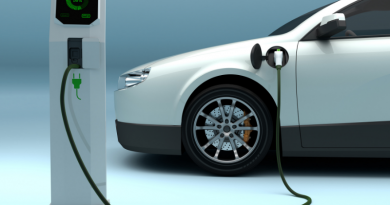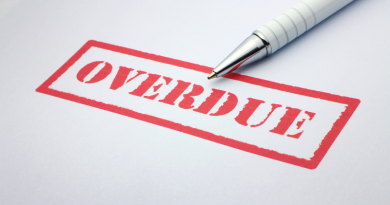Struggling to pay tax – what should you do?
The January self-assessment payment deadline is not well timed, falling as it does in a month when people may be already struggling to pay their Christmas credit card bills. However unpalatable the 31 January tax deadline is, it is not one that should be ignored.
Taxpayers who are within self-assessment will need to pay any remaining tax due for 2020/21 by midnight on 31 January 2022, and also any Class 4 and Class 2 National Insurance liabilities for 2020/21. Where their tax and Class 4 National Insurance liability for 2020/21 was at least £1,000 and less than 80% of their liability was collected at source, such as via PAYE, the first payment on account must also be paid by midnight on 31 January 2022.
If you are struggling to pay what you owe, what can you do?
Contact HMRC
Ignoring the problem will not make it go away; rather, it will make it worse. If you think that you are going to struggle to pay what you owe in full by the 31 January 2022 deadline, you should set up a time to pay agreement or contact HMRC as soon as possible, and ideally before 31 January 2022. However, if you miss this deadline, all is not lost and you may still be able to set up or agree an instalment plan.
Burying your head in the sand is definitely not recommended. It is important to open up a dialogue and review your options with HMRC.
Paying in instalments
It may be possible for you to pay what you owe in instalments by setting up a time-to-pay agreement.
You can do this yourself online via your Government Gateway account if:
- you have filed your latest self-assessment tax return;
- you owe less than £30,000;
- you are within 60 days of the payment deadline; and
- you plan to pay back what you owe within the next 12 months or less.
If you do not meet all the above conditions, you will not be able to set up an instalment payment plan online. However, you may be able to agree one with HMRC. To do this, you will need to call the Self-Assessment Payment Helpline on 0300 200 3822. The line is open from Monday to Friday from 8am to 4pm. If you cannot pay another type of tax, for example, corporation tax, you should instead call HMRC’s Payment Support Service on 0300 200 3835. The lines are open from Monday to Friday from 8am to 4pm.
When making the call, make sure that you have the following information to hand:
- your unique taxpayer reference and National Insurance number;
- your VAT registration number if you are VAT-registered;
- your bank account details; and
- details of any previous payments that you have missed.
HMRC will take into account what you are able to pay in full, your monthly income and outgoings, any savings and investments that you have and what you can afford to repay each month. If you have savings or investments, you will be expected to use these to clear your tax bill.
There is no set length for a time-to-pay agreement – it will depend on how much you can afford to pay each month to clear the tax that you owe. The payments are usually made by direct debit, and once the agreement is in place, it is important that payments are not missed, and future liabilities are paid on time. You can pay more than the agreed amount if you are able to clear the debt more quickly. If you do not make the payments, or HMRC will not agree to a time-to-pay agreement, you will be expected to pay what you owe in full. HMRC may use their debt collection powers if you do not do this.
If you’ve received independent debt advice, for example from Citizens Advice*, you may have a ‘Standard Financial Statement’. HMRC will accept this as evidence of what you earn and spend each month.
*For further information on dealing with income tax arrears, take a look at the Citizens Advice site.
If your company is in tax debt
HMRC will discuss your company’s finances with you.
They’ll ask you to make a verbal proposal, explaining how you’ll pay your tax bill as quickly as you can. An adviser will ask questions about your proposal to make sure it is realistic and affordable for you.
You must reduce your debt as much as possible before entering into a Time to Pay arrangement. You can do this by releasing assets like stock, vehicles and shares.
HMRC may ask company directors to:
- put personal funds into the business
- accept lending
- extend credit
How HMRC works out your payments
The amount you’ll be asked to pay each month is based on the money you have left after you pay any rent, food or utility bills and fixed outgoings you have, like subscriptions.
You’ll usually be asked to pay around half of what you have left over each month towards the tax you owe.
If you get a pension HMRC will count that as income, but will not count the amount in your pension pot as savings.
You can also agree to pay more if you want. Paying your debt quicker means you’ll pay less in total, as interest is added to your bill each month.
When you cannot pay in instalments
You cannot set up a Time to Pay arrangement if HMRC do not believe you will follow a repayment plan. For example, if you have not paid taxes in the past.
If HMRC cannot agree a payment plan with you, they’ll ask you to pay the amount you owe in full. They can collect unpaid tax directly if you refuse to pay.
After a Time to Pay arrangement has been agreed
If you miss a payment, HMRC will contact you to find out why. Where possible, HMRC will restore the payment arrangement or renegotiate it with you.
If you cannot pay another tax bill, contact HMRC. You may be able to include the new tax bill in your existing Time to Pay arrangement.
To help you manage your tax liabilities in the future, it is worth seeking professional advice from your bookkeeper or accountant. HMRC provides a free guide on keeping records for your tax return.
Originally posted 2021-12-14 15:27:43.
- Struggling to pay tax – what should you do? - February 10, 2026
- Are you using the right finance tools for your business? - December 29, 2025
- What is the best way of taking money out of my business? - November 7, 2025






